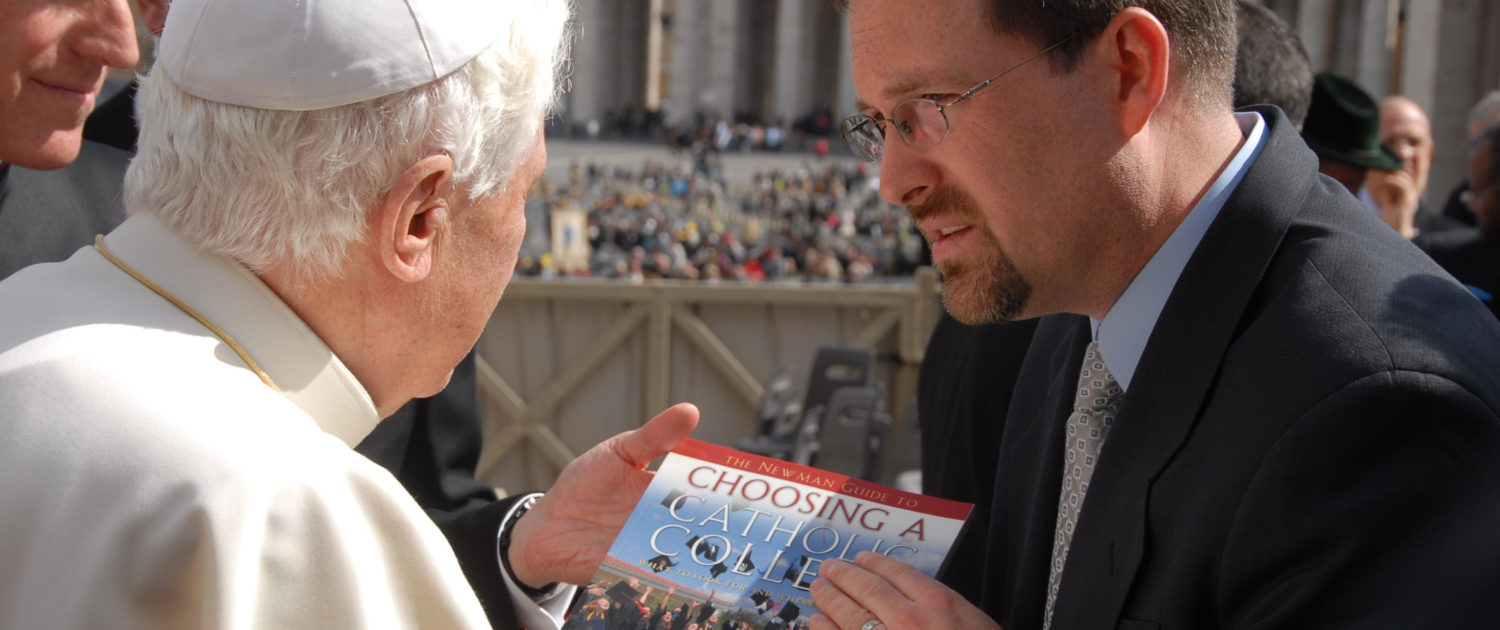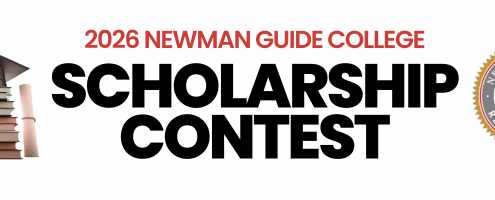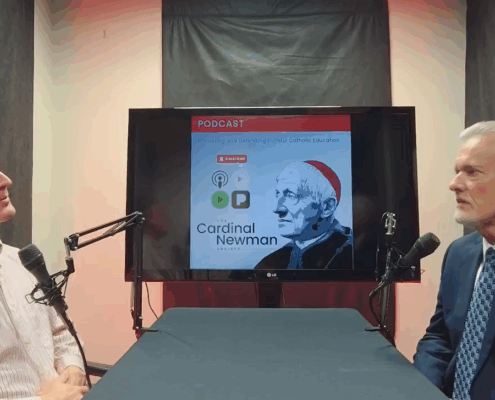“Education is integral to the mission of the Church to proclaim the Good News,” said Pope Benedict XVI in his 2008 address to American Catholic educators. He repeated the Vatican’s long-held teaching that Catholic education is key to the Church’s work of evangelization.
And amid all of the recent infidelity and scandal in the Church, the secularization of Western culture, the ascent of radical ideologies rejecting the truth of man and God, and the dramatic decline of Catholic school enrollment in the U.S. (about two thirds since 1970), the need for a renewal of faithful Catholic education has never been greater.
Speaking to Catholic school and college leaders, Pope Benedict insisted that truth and fidelity must remain at the heart of Catholic education:
First and foremost every Catholic educational institution is a place to encounter the living God Who in Jesus Christ reveals His transforming love and truth (cf. Spe Salvi, 4). This relationship elicits a desire to grow in the knowledge and understanding of Christ and His teaching. In this way those who meet Him are drawn by the very power of the Gospel to lead a new life characterized by all that is beautiful, good, and true; a life of Christian witness nurtured and strengthened within the community of our Lord’s disciples, the Church.
Ex corde Ecclesiae
This vision reflects what Saint John Paul II professed nearly two decades earlier, in the Apostolic Constitution for Catholic Universities, Ex corde Ecclesiae. Inspired by this document and its conviction that Catholic education comes “from the heart of the Church,” The Cardinal Newman Society was founded with initial emphasis on Catholic higher education, now promoting faithful education across all levels and methods. Many of the principles in Saint John Paul’s constitution apply to all Catholic education, which:
…as Catholic, informs and carries out its research, teaching, and all other activities with Catholic ideals, principles, and attitudes. …Priority is to be given to those means which will facilitate the integration of human and professional education with religious values in the light of Catholic doctrine, in order to unite intellectual learning with the religious dimension of life.
Our work also draws upon the vision of our patron, Saint John Henry Newman, a lifelong educator who founded the famous Oratory School in Birmingham, England, and delivered the lectures in Idea of a University while founding a Catholic university in Dublin, Ireland. Newman argued that a genuine commitment to truth, without excluding the most important Truth that is revealed by God, requires a strong Catholic foundation and adherence to the teachings of the Church.
Such fidelity to the Magisterium of the Catholic Church is also fundamental to the work of the Newman Society, which seeks always to advance the Church’s principles of faithful Catholic education. The many Vatican documents on Catholic education deserve to be rediscovered and proclaimed, and we strive to study, teach, and witness to these teachings in all that we do.
Antidote to Secularism
Since the 1960s, Catholics have witnessed a creeping secularism in Western society and even within the Church. Many Catholic schools and colleges, which should be devoted to truth, have misled young people by turning away from Catholic teaching and practice, choosing instead a bland conformity to a secular model of instruction that neglects authentic human formation.
It is with this concern—but also with great hope in the impact of even a small number of faithful Catholic schools, homeschools, and colleges to graduate leaders who will correct these errors—that the Newman Society maintains a strong sense of urgency and importance in its work of promoting and defending faithful Catholic education.
There is a great renewal of faithful education underway, and we see fruits of the work of the Holy Spirit in the growing number of devoted Catholic educators, supported eagerly by Catholic families and under the direction of many committed bishops and diocesan school superintendents. The Newman Society strives to aid that renewal and lead Catholic educators toward an ever-stronger embrace of the divine mission to which they have been called.




